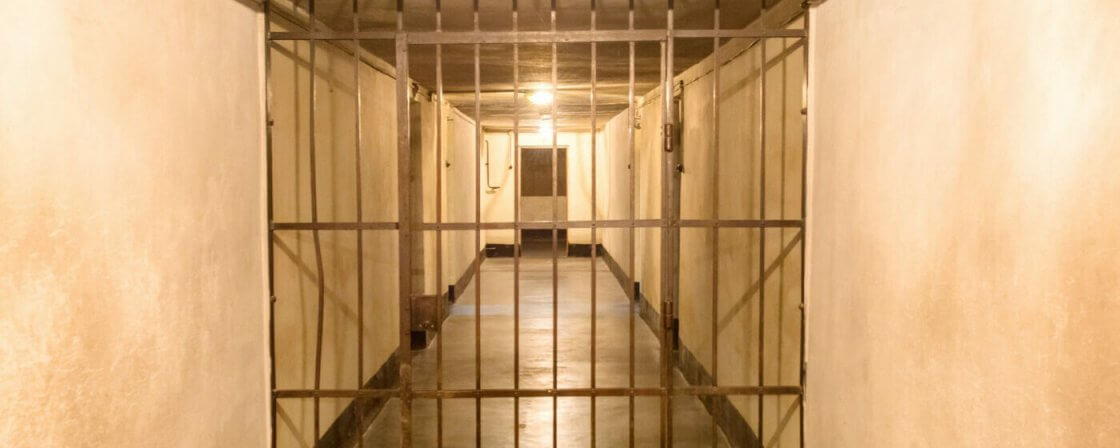Imprisonment can theoretically be chosen as a punishment for any crime, but it should be chosen for more serious crimes, whereas for crimes of lesser social danger it is a last resort. The law expresses this by stating that for offences for which the upper limit of the penalty does not exceed five years’ imprisonment, an unconditional prison sentence may be imposed only if the imposition of any other penalty would not lead to the rehabilitation of the offender. In practice, however, this provision is reflected in suspended prison sentences rather than the intended imposition of alternative penalties (e.g. fines, prohibition of activity, etc.).
Are you solving a similar problem?
Are you facing a legal problem that's beyond you?
We will assess your case and draft a proposal for legal services to resolve it within 24 hours. If you then decide to entrust its solution in our hands, you have the drafting of the proposal free of charge.
I want to find a tailor-made solution
- When you order, you know what you will get and how much it will cost.
- We handle everything online or in person at one of our 6 offices.
- We handle 8 out of 10 requests within 2 working days.
- We have specialists for every field of law.
The legal regulation of imprisonment can be found not only in the Criminal Code, but also in a separate law on the execution of imprisonment and in the decree issuing the rules for the execution of imprisonment.
Principles of sentencing to imprisonment
The Criminal Code sets a penalty rate of imprisonment for each individual offence. The severity of the offence can be inferred from this. For each offence, there is a lower and an upper limit to the length of the sentence, with the upper limit providing certainty to offenders that the courts will not be able to be arbitrary and impose inadequate sentences; on the other hand, a relatively wide range of rates (e.g. the wide range of sentences, ranging from “two to eight years”, gives the judge a relatively broad opportunity to assess the case individually and to take into account the personality of the offender, his criminal history, his behaviour after the offence, as well as mitigating or aggravating circumstances.
There is nominimum rate of imprisonment in the Criminal Code, so theoretically it could be days or units of weeks. In practice, however, the imposition of such a sentence would be rather impractical and, in the case of a less serious offence, the judge would prefer to opt for an alternative or suspended sentence.
The maximum possible duration of an unconditional prison sentence is generally 20 years, unless it is an exceptional sentence. An exceptional sentence is a sentence of between 20 and 30 years’ imprisonment or life imprisonment. Such a penalty presupposes, firstly, the very high gravity of the offence, secondly, that the offender’s rehabilitation is difficult, and the possibility of imposing such a penalty must be specified in the Criminal Code for the particular crime. Typically, this includes, for example, the offence of murder, general danger, treason, terrorist attack, terror or genocide.
The variant of imprisonment already mentioned is suspended sentencing. This is de facto a threat of imprisonment if the offender does not behave properly during the stipulated probation period. Such a solution may be resorted to in cases where the sentence does not exceed three years, the decisive length being not the statutory penalty rate but the length of the sentence imposed (and suspended) in the particular case. At the same time, in imposing the condition, the court must consider that in the case in question, given the offender’s person and circumstances, a custodial sentence is not necessary for rehabilitation.
The basic range for determining the length of imprisonment is therefore provided by the relevant facts, or one of their variants, as described in the individual paragraphs of the section.
Tip for article
We have dealt withthe offence and its features in detail in our article.
Individual adjustments of the penalty rate
In determining the specific level of the penalty, the court shall take into account, in addition to the nature and gravity of the offence, the circumstances, the offender’s previous lifestyle, the possibility of his or her rehabilitation, his or her behaviour after the offence, the time that has elapsed since the offence was committed and other circumstances provided for by law.
Certain mitigating circumstances offered by the law may lead the judge to lean towards the lower limit of the penalty. These include, for example, the commission of the offence in severe agitation, out of compassion, under the influence of a threat, or under a mistake of law. The previous life and the fact that it is the first offence or that the offender sincerely regrets the act are also taken into account.
On the other hand, aggravating circumstances are, for example, committing the offence for profit, in a brutal manner, taking advantage of someone’s dependence or need, or committing the offence against a child, a sick person, a disabled person, etc.
However, some of the mitigating or aggravating circumstances may coincide directly with the description of the offence. In such a case, such a circumstance cannot be taken into account again when determining the sentence.
Example: the offence of manslaughter consists essentially of intentionally killing someone in a state of intense excitement due to fear, fright, confusion or other movements of the mind. Thus, if the killing is committed in the heat of passion, it cannot be regarded as a mitigating circumstance in the case. However, this would be possible, for example, in the case of the offence of affray, which makes no mention of agitation.
Extraordinary reduction of a prison sentence
In certain cases, where the court considers that the statutory sentence would be disproportionately harsh for the offender and that rehabilitation could be achieved with a shorter sentence, it may reduce the sentence below the lower limit. This option is usually applied in situations where there is a formal circumstance that would condition a higher penalty rate, but in reality the offence has not been more harmful and even imposing a penalty in the lower half of the rate could be disproportionate. According to previous interpretations, this institute may be used under the condition that there are several mitigating circumstances which, taken together, substantially reduce the gravity of the offence, or if one of them is unusually intense.
Tip for article
Learn when you can be granted a presidential pardon, what rights the president has in this context, where the limits of this power extend, and the most controversial examples of it in the past.
A frequently cited example in this context is the offence of support and promotion of terrorism, for which the law provides for imprisonment for five to fifteen years. This is undoubtedly appropriate, for example, in the case of active support for, cooperation with and participation in the promotion of a terrorist association. However, a Facebook comment such as“How they like their medicine! Well done!” to a video of a right-wing extremist who shot dead five dozen Muslims in an Australian mosque. Whilst it is completely unethical to condone such a brutal act and punishment is appropriate, it must be taken into account that the perpetrator of a completed terrorist attack, for example, faces a sentence of between three and 12 years, which is clearly disproportionate. Internet commentators take up hate speech as a hobby and are often unaware of its impact and potential punishment. In this case, a suspended sentence seems more appropriate , as a kind of warning to the offender of the dangerousness of his behaviour and a warning against its repetition. As mentioned above, a suspended sentence cannot be imposed at such a high rate. Therefore, it would be appropriate to make use of the aforementioned institute.
A reduction of the sentence may also be applied, for example, to an offender who has helped to prevent a crime which another has prepared or attempted, or who has pleaded guilty, or to an offender who cooperates and thus contributes to the clarification of organised crime
Tip for article
Tip: In the case of criminal offences, we may encounter a situation where the offender’s conduct meets all the elements that the law requires for the offence, yet the offence is not or cannot be punished in any way because too much time has elapsed since the offence was committed. We are talking about the statute of limitations on the offence. You can read exactly how it works in our article.
Extraordinary increase in prison sentence
The opposite of the previous institute is a possible increase of the prison sentence. Again, we are not talking about “ordinary” aggravating circumstances that would lead the judge to cap the sentence. In this case we are talking about something different. For an offender who has committed a particularly serious crime again (i.e. for which the Criminal Law provides for a maximum penalty of at least ten years’ imprisonment) for which he has already been punished in the past, the court may impose a sentence at the upper half of the penalty rate of imprisonment provided for in the Criminal Law, the upper limit of which is increased by one third. Such a step may be taken in cases of particularly high seriousness of the crime or difficulty in reforming the offender.
It is thus an opportunity for the judge to protect society from a dangerous repeat offender.
When imposing a prison sentence, the court also decides on the type of prison in which it will be served. The law knows a total of four types of prison according to the severity of the regime. Specifically, these are supervised, supervised, secure and high-security prisons.




